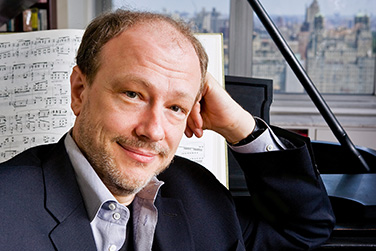Marc-André Hamelin, piano
Canada
Marc-André Hamelin, piano

Event Attributes
Presented By
Marc-André Hamelin’s strikingly original blend of musicianship and virtuosity has earned him near-legendary status among connoisseurs of fine pianism.
Long known for his exploration of the most challenging and unfamiliar pianistic terrain (Alkan, Godowsky, Medtner), Hamelin is now recognized worldwide for the originality and technical brilliance of his performances of the classic repertoire, including Haydn, Schubert, Liszt and Brahms. He has appeared with all the major American orchestras in addition to recitals throughout the US, his native Canada, Europe, Australia and the Far East. He has recorded nearly 60 CDs for Hyperion, earning numerous awards and accolades: “transcendent technique;” “awe-inspiring;” “rare sensitivity;” and “breathtakingly brilliant.”
Program
- Samuel Feinberg: Sonata No. 2, Op. 2
- Samuel Feinberg: Sonata No. 1, Op. 1
- Nicolas Medtner: Sonata in E minor, Op. 25 No. 2, "Night Wind"
- Claude Debussy: Images, Book 1 (Reflections in the Water, Hommage a Rameau, Movement)
- Franz Liszt: Venezia e Napoli (Gondoliera, Canzone, Tarantella)
Engagement events
Engagement at The Clarice is characterized by facilitated audience interactions with artists, scholars and community leaders that are focused on process and research rather than product and performance:
- Marc-André Hamelin will join students and faculty of the School of Music in an informal session to discuss his career and the repertoire of this performance.
Connect with Marc-André Hamelin on social media!
- Twitter: @MarcAndreHam
Video of Marc-André Hamelin performing “Variations on a Theme by Paganini”
Review by the Washington Post
The delicate fioratura, or blossoming passages, with which Liszt embellishes the Italian songs quoted in these pieces, hung in the air like gossamer haloes of sound. Above all, it was the simplicity of approach that allowed the music to rise to the level of exalted declamation of great poetry. This was playing that restored the concept of virtue to the term virtuoso, leaving no doubt that Hamelin is one of the finest Liszt players today.
— PATRICK RUCKER, The Washington Post, October 5, 2015
